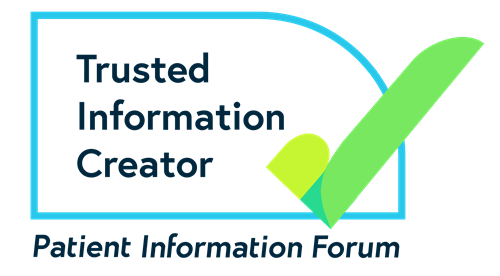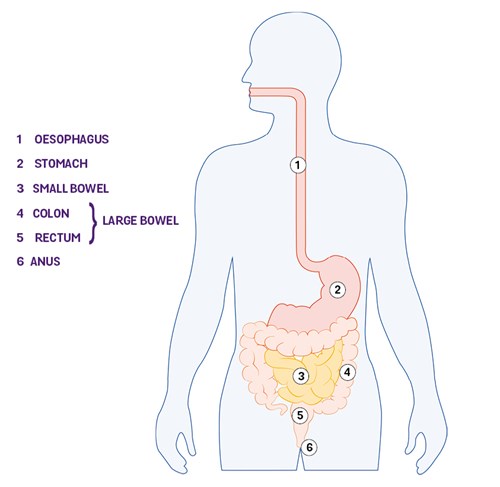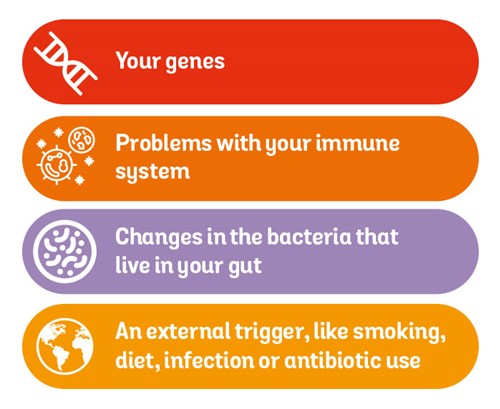Everyone is different. Some people with Crohn’s or Colitis feel well most of the time. Others may feel unwell more often or for longer periods of time.
Not everyone feels the same, and how you feel can change over time.
Crohn’s and Colitis can cause:
- Cramping pains
- Frequent and urgent diarrhoea, sometimes with blood and thick liquid (mucus)
- Swollen joints
- Mouth ulcers
- Tiredness
- Lack of iron (anaemia)
- Losing weight and not wanting to eat
- Inflamed eyes
If you have Crohn’s, you may also get cracks (fissures) in the skin around your bottom. Sometimes your gut can become narrow (strictures). Your IBD team are there to help. Talk to them if you notice anything unusual for you.
Flare-ups
Times when you feel unwell are called flare-ups.
Taking your medicines regularly, even when you feel better, can help stop flare-ups happening.
Your doctor (gastroenterologist) and the rest of your IBD team are there to support you. Ask your hospital if they have an IBD nurse you can speak to if you need help in between appointments. Or search our map to find your local specialist service.
Remission
Remission is when your Crohn’s or Colitis is being controlled well. You should continue to take your medicines even when you feel better.
Many people still feel tired even when their Crohn’s or Colitis is under control, so it’s important to rest when you need to.
If you still feel unwell in your gut, even when your doctor says you’re in remission, you may also have a condition called irritable bowel syndrome (IBS). Inflammatory Bowel Disease (IBD) and IBS are different, but you can have both at the same time. IBS is very common, and can cause tummy pain, bloating, diarrhoea, and constipation. But unlike Crohn’s and Colitis, there is no inflammation, or blood in the poo.
If you have IBS as well as Crohn’s or Colitis, you may need treatment for both.





